Ford Transit Transporter VS Subaru Forester – Specs, Efficiency & Price Comparison
Which model is the better choice – the Ford Transit Transporter or the Subaru Forester? We compare performance (269 HP vs 136 HP), boot capacity ( vs 508 L), efficiency (21.30 kWh7.90 L vs 8.10 L), and of course, the price (39900 £ vs 34700 £).
Find out now which car fits your needs better!
The Ford Transit Transporter (Cargo Van) is powered by a Diesel or Electric engine and comes with a Manuel or Automatic transmission. In comparison, the Subaru Forester (SUV) features a Petrol MHEV engine and a Automatic gearbox.
When it comes to boot capacity, the Ford Transit Transporter offers , while the Subaru Forester provides 508 L – depending on what matters most to you. If you’re looking for more power, you’ll need to decide whether the 269 HP of the Ford Transit Transporter or the 136 HP of the Subaru Forester suits your needs better.
There are also differences in efficiency: 21.30 kWh7.90 L vs 8.10 L. In terms of price, the Ford Transit Transporter starts at 39900 £, while the Subaru Forester is available from 34700 £.
Compare all the key specs now and find out which model fits your lifestyle best!
Ford Transit Transporter
The Ford Transit Transporter has long been a staple in the commercial vehicle sector, renowned for its reliability and versatility. It offers a comfortable cabin with a modern design that enhances the driving experience, making long journeys more enjoyable. With a focus on practicality, the Transit provides ample cargo space, meeting the demands of businesses and individual users alike.
details @ media.ford.com
@ media.ford.com
 @ media.ford.com
@ media.ford.com
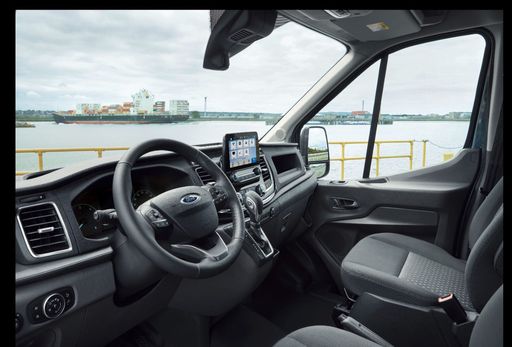 @ media.ford.com
@ media.ford.com
Subaru Forester
The Subaru Forester is a versatile SUV known for its impressive off-road capabilities and practical design. With a spacious interior and advanced safety features, it offers comfort and security for both city driving and outdoor adventures. Its reliable performance and all-wheel-drive system make it a popular choice among those who appreciate a combination of functionality and rugged charm.
details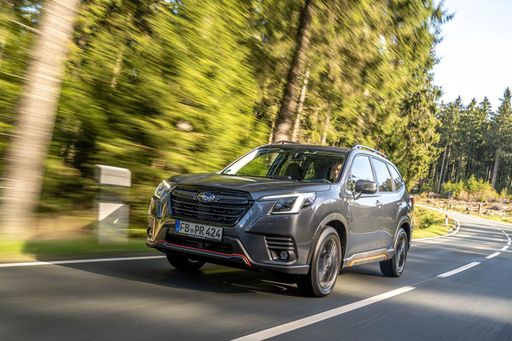 @ Subaru
@ Subaru
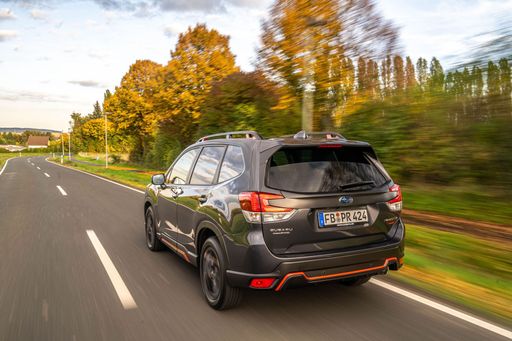 @ Subaru
@ Subaru
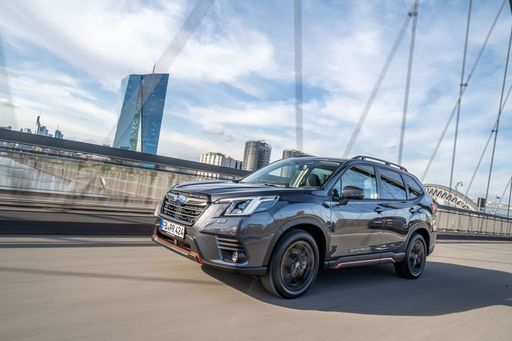 @ Subaru
@ Subaru
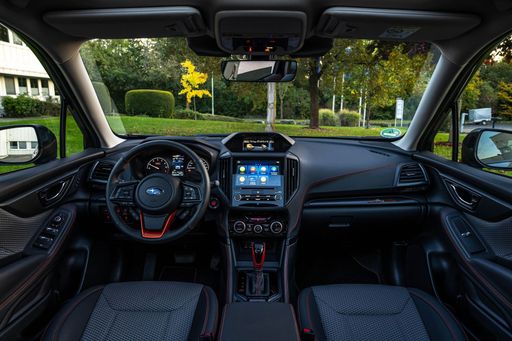 @ Subaru
@ Subaru
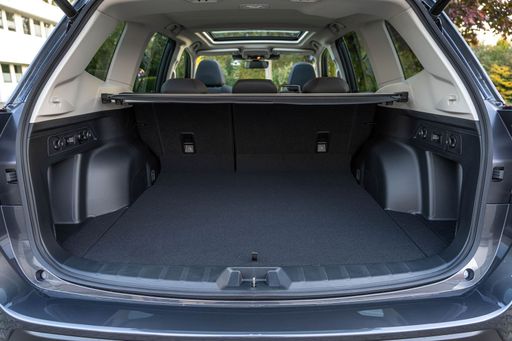 @ Subaru
@ Subaru

|

|
|
|
|
Costs and Consumption |
|
|---|---|
|
Price
39900 - 69100 £
|
Price
34700 - 42200 £
|
|
Consumption L/100km
7.9 - 10.3 L
|
Consumption L/100km
8.10 L
|
|
Consumption kWh/100km
21.3 - 32 kWh
|
Consumption kWh/100km
-
|
|
Electric Range
247 - 317 km
|
Electric Range
-
|
|
Battery Capacity
68 kWh
|
Battery Capacity
-
|
|
co2
0 - 270 g/km
|
co2
183 g/km
|
|
Fuel tank capacity
70 L
|
Fuel tank capacity
48 L
|
Dimensions and Body |
|
|---|---|
|
Body Type
Cargo Van
|
Body Type
SUV
|
|
Seats
3 - 6
|
Seats
5
|
|
Doors
4
|
Doors
5
|
|
Curb weight
2074 - 2765 kg
|
Curb weight
1693 - 1739 kg
|
|
Trunk capacity
-
|
Trunk capacity
508 L
|
|
Length
5531 - 6704 mm
|
Length
4670 mm
|
|
Width
2059 mm
|
Width
1830 mm
|
|
Height
2530 - 2778 mm
|
Height
1730 mm
|
|
Payload
735 - 2607 kg
|
Payload
446 - 492 kg
|
Engine and Performance |
|
|---|---|
|
Engine Type
Diesel, Electric
|
Engine Type
Petrol MHEV
|
|
Transmission
Manuel, Automatic
|
Transmission
Automatic
|
|
Transmission Detail
Schaltgetriebe, Automatikgetriebe
|
Transmission Detail
-
|
|
Drive Type
Front-Wheel Drive, Rear-Wheel Drive, All-Wheel Drive
|
Drive Type
All-Wheel Drive
|
|
Power HP
105 - 269 HP
|
Power HP
136 HP
|
|
Acceleration 0-100km/h
-
|
Acceleration 0-100km/h
12.20 s
|
|
Max Speed
120 km/h
|
Max Speed
188 km/h
|
|
Torque
310 - 430 Nm
|
Torque
182 Nm
|
|
Number of Cylinders
4
|
Number of Cylinders
4
|
|
Power kW
77 - 198 kW
|
Power kW
100 kW
|
|
Engine capacity
1995 cm3
|
Engine capacity
1995 cm3
|
General |
|
|---|---|
|
Model Year
2019 - 2024
|
Model Year
2025
|
|
CO2 Efficiency Class
G, A
|
CO2 Efficiency Class
G
|
|
Brand
Ford
|
Brand
Subaru
|
Ford Transit Transporter
Discovering the Ford Transit Transporter: A Blend of Tradition and Innovation
The Ford Transit Transporter has long been a staple in the commercial vehicle market, known for its reliability and versatility. As Ford continues its innovative journey, the Transit Transporter integrates modern technology and eco-friendly advancements, making it more appealing than ever. Here, we explore some of its key technical details and innovations.
Under the Bonnet: Engine Variants and Efficiency
The Ford Transit Transporter offers a variety of engine options to cater to diverse commercial needs. Among these, the 2.0 EcoBlue Diesel engine provides a robust selection of power outputs, ranging from 105 to 165 PS. Not just limited to traditional fuel, Ford also introduces the E-Transit line with electric motors generating up to 269 PS. This transition to electric is an essential step towards sustainability, achieving an impressive range of 247 to 317 km on a full charge.
Fuel Economy and Environmental Impact
When it comes to fuel efficiency, the Transit Transporter presents a competitive edge with diesel variants consuming between 7.9 to 10.3 L/100km. On the electric side, consumption levels are measured at 21.3 to 32 kWh/100km. Furthermore, the Transit’s CO2 emissions range from zero for electric models to 270 g/km for select diesel engines, placing the vehicle in varying CO2 efficiency classes from G to A.
Performance and Driving Dynamics
Designed for optimal performance, the vehicle’s torque output ranges from 310 to 430 Nm, facilitating smooth and powerful driving experiences across various terrains. The Transit Transporter boasts a maximum speed of 120 km/h, ensuring timely commutes and deliveries, crucial for business efficacy.
The Versatility of Drivetrain Options
The Ford Transit Transporter provides an array of drivetrain configurations, including front-wheel, rear-wheel and all-wheel drive. This adaptability enables the vehicle to tackle different driving conditions with ease, offering stability and resilience no matter the challenge.
Technology and Innovation on Board
Ford’s commitment to innovation is evident within the Transit Transporter’s interior. Intuitive features such as advanced driver-assistance systems, smart connectivity tools, and ergonomic seating arrangements ensure that both driver and passengers enjoy a seamless and comfortable journey, ideal for long rides or daily routines.
Crafted for Practicality and Comfort
With length variations extending from 5531 mm to 6704 mm, and height options from 2530 mm to 2778 mm, the Ford Transit Transporter offers expansive cargo space and flexible seating arrangements. Depending on the variant, seating options range from 3 to 6 seats, catering to diverse passenger and cargo needs.
A Future-Ready, Cost-Effective Choice
Price tags for the Ford Transit Transporter range from €46,589 to €80,611, accommodating different budget requirements. With monthly operation costs calculated between €1430 and €1991, the Transit remains a financially viable option for businesses seeking reliability and efficiency.
Conclusion: An Unyielding Commitment to Excellence
The Ford Transit Transporter stands as a testament to Ford’s dedication to marrying tradition with progress. With its diverse range of powertrains, technological integrations, and practical design, it continues to lead the commercial vehicle segment, ready to meet the challenges of modern mobility and sustainability.
Subaru Forester
The Subaru Forester: A Staple of Innovation
The Subaru Forester continues to stand out as a robust and reliable choice in the SUV market. Known for its rugged capabilities and thoughtful design, the Forester combines traditional Subaru strengths with modern technological innovations. As an all-wheel-drive vehicle, it promises safety, efficiency, and performance in a dynamic package.
Engineering and Performance
At the heart of the Subaru Forester lies its 2.0-litre petrol mild-hybrid engine, delivering a stout 150 PS and 194 Nm of torque. This power is channelled through an advanced CVT gearbox, ensuring smooth and responsive acceleration. The vehicle can sprint from 0 to 100 km/h in approximately 11.8 seconds, showing its agility despite its SUV stature.
One of the highlights is its all-wheel-drive system, designed to offer excellent traction and stability across diverse driving conditions. The Forester provides a top speed of 188 km/h, ensuring an exciting drive whether you're navigating city streets or venturing onto the open road.
Technical Specifications
The Forester maintains a balance between practicality and efficiency. With a fuel consumption rate of 8.1 L/100km and CO2 emissions positioned at 185 g/km, this SUV provides an efficient yet powerful performance. The mild-hybrid system is supported by a 0.6 kWh battery, offering enhanced fuel economy and reducing environmental impact.
Weighing between 1658 and 1693 kg, the Forester is designed to offer both robustness and fuel efficiency. It boasts a generous cargo capacity of 509 litres, perfect for both daily use and adventurous getaways. The exterior dimensions—4640 mm in length, 1815 mm in width, and 1730 mm in height—strike a balance between presence and manoeuvrability.
Design and Interior Features
With a sleek and modern design, the Forester is available in several trims catering to different customer preferences, such as the Trend Lineartronic, Active Lineartronic, and the luxurious Edition Exclusive Cross Lineartronic. The interior space is noteworthy, providing comfortable seating for five passengers, making it an excellent option for family journeys.
Safety and convenience are paramount in the Forester, featuring driver assistance systems designed to support and protect. The model comes equipped with state-of-the-art technology to keep occupants entertained and connected, enhancing the driving experience significantly.
Affordability and Running Costs
Price-wise, the Subaru Forester ranges from €37,790 to €46,450, aligning with its features and capabilities. The monthly costs for ownership may vary between €1125 and €1221, with costs per kilometre ranging from 45 to 48.9 cents. For those seeking an SUV that's a combination of comfort, reliability, and reasonable running costs, the Forester presents a persuasive choice.
Conclusion
The Subaru Forester remains a solid contender in the SUV segment, offering a mix of performance, practicality, and modern features. This vehicle is engineered for those who desire a dependable and versatile companion for all their adventures. With its blend of innovative technologies and classic Subaru reliability, the Forester continues to be an attractive option for discerning drivers.
The prices and data displayed are estimates based on German list prices and may vary by country. This information is not legally binding.
